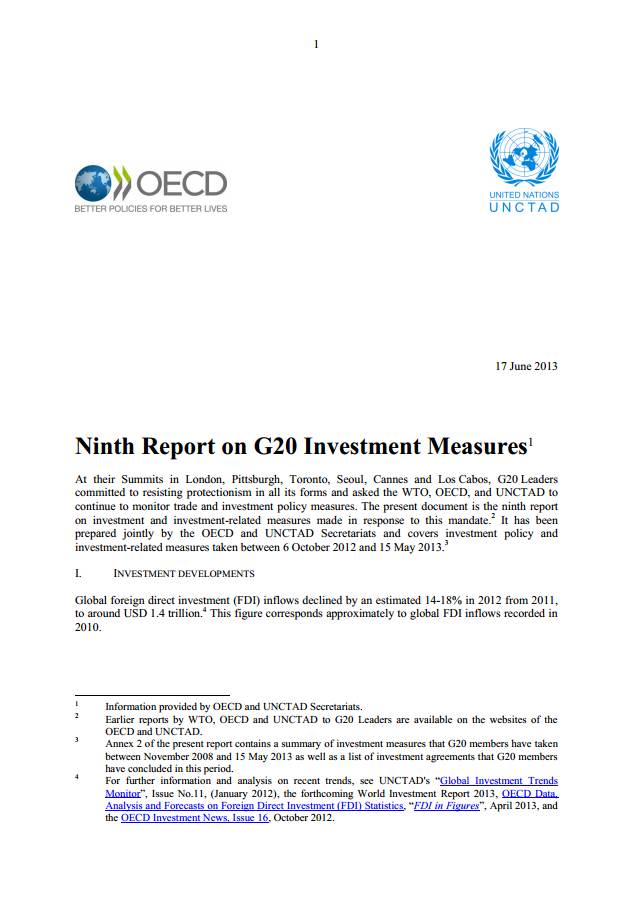Ninth Report on G20 Investment Measures
At their Summits in London, Pittsburgh, Toronto, Seoul, Cannes and Los Cabos, G20 Leaderscommitted to resisting protectionism in all its forms and asked the WTO, OECD, and UNCTAD to continue to monitor trade and investment policy measures. The present document is the ninth report on investment and investment-related measures made in response to this mandate.prepared jointly by the OECD and UNCTAD Secretariats and covers investment policy and investment-related measures taken between 6 October 2012 and 15 May 2013.
On the whole, G20 members have continued to honour their pledge not to introduce new restrictive policies for international investment. Almost all new investment policy measures that G20 members adopted during the reporting period tended to eliminate investment restrictions, and to facilitate inward or outward investment.
However, formal policy changes through the adoption of laws and regulations are not the only way in which governments influence – and at times discourage – international capital flows, including foreign direct investment. Individual administrative decisions with regard to specific foreign investment projects (for instance, economic benefits tests or national security-related investment reviews) also influence capital flows. In addition – as witnessed during this reporting period – governments may send public signals that they have unfavourable views of certain foreign investment projects. Such forms of intervention are not captured by this report, as a consistent and complete reporting on these measures is not possible. Nonetheless, such action may have a chilling effect on specific investment projects and, more generally, on trust in fair and transparent treatment of foreigninvestors.
G20 Leaders should therefore bear in mind that the rather encouraging findings in this report on thedevelopment of their formal investment-related policies of general application do not present a complete picture of broad policy measures regarding international capital flows and that their commitment to resist protectionism in all its forms also covers individual administrative decisions that involve significant discretion in reviewing foreign investment projects and informal means for stifling international investment.
















